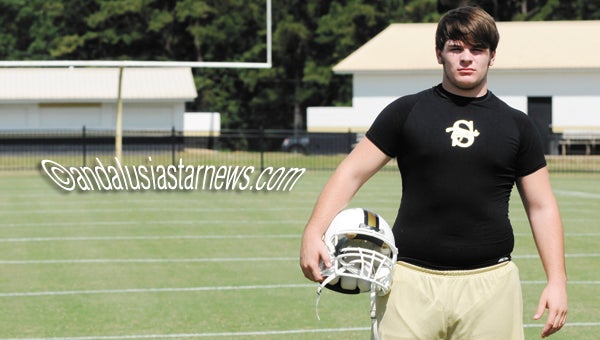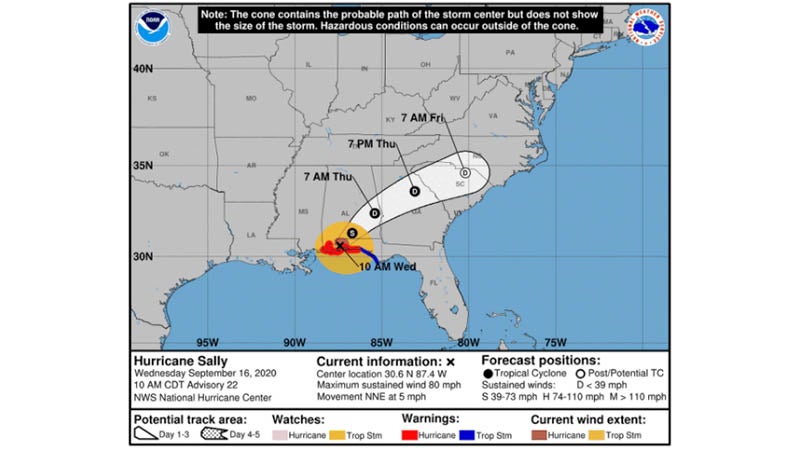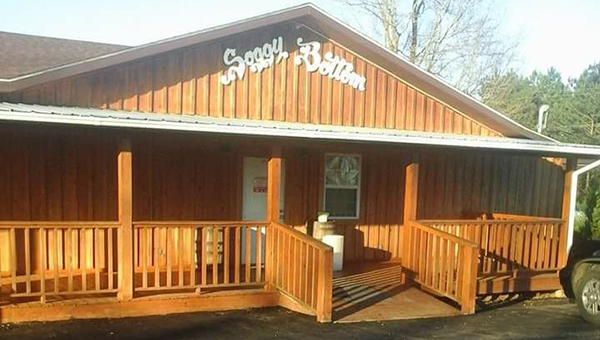He’s a survivor
Published 12:02 am Friday, September 7, 2012

Straughn High School’s Gage Worley survived childhood cancer and now plays for the Tigers. | Andrew Garner/Star-News
Worley overcomes childhood cancer; takes to SHS gridiron on Friday nights
Gage Worley is a survivor. Now more than 12 years after his diagnosis, you’d never know he had cancer.
Gage, a sophomore, is playing football and baseball — football for Straughn’s B-team as, an offensive lineman and every year, celebrates another year of life he doesn’t take for granted at Relay For Life’s annual event where survivors lap around the survival circle.
Worley said that just gives him another chance to share his story.
“I go to the candle bag and light all of the people’s candles with mine,” Worley said. “I think about all of the kids who have died from (cancer), and I just feel so lucky to be able to walk around that track. When I walk around the survival track, I think about all of the kids who died.
“I was just lucky I didn’t die,” he said.
Gage was just 28 months old and his mother, Shea, was drying him off after a bath before bed when she said she noticed a “knot” in his stomach.
At first, it was thought to be a simple hernia.
But, on the day before Christmas Eve, the Worley family’s world turned upside down.
“As soon as (the doctor) went in there, he put him on the table and the doctor said, ‘No, it’s not a hernia’,” Shea said.
It was three tumors in his liver, to be specific, Shea said.
“Automatically, we set up an appointment in Birmingham at Children’s Hospital, which was the day after Christmas,” she said. “It was very heart-breaking, that Christmas.”
Gage spent a week in the hospital, where a biopsy and additional tests revealed stage IV hepatoblastoma, which had spread to his lungs.
All total, Gage had 17 nodules in his lungs and three tumors in his liver.
For the next 10 months, Gage went through chemotherapy.
While the chemotherapy cleared the lungs of the cancerous nodules, doctors said he needed a liver transplant and the prognosis wasn’t good.
Doctors gave him 18 months to live.
Gage wasn’t able to get on the donor list and needed a living relative to donate a portion of their liver.
“I wouldn’t settle for that,” Shea said. “(The doctor) told me what my options were, either I can sit down and let this go and give him 18 good months, or I could chance it with a transplant,” she said. “He was a good candidate, but he couldn’t promise it would work. We told him that we wanted him to have more than 18 months.”
One thing Shea said she found troubling was the the list of liver donors didn’t grow. It wasn’t like they were giving blood, she said.
Soon after and without her knowing, her first cousin, Adam Easley, came to the rescue, she said.
“He’s my hero,” Gage said.
Easley, an Andalusia native and Wetumpka resident, was a perfect match for the transplant.
On Aug. 10, two days after Gage turned 3, he underwent surgery, where doctors inserted more than a third of Easley’s liver to form Gage’s new liver.
“The longest six hours I think of my life,” Shea said.
After the surgery was complete, Shea said she was met with great news.
“(The doctor) said ‘I wanted to tell you now that he was producing bile before I ever sewed him up,’” she said. “He said the surgery went well and really good.”
When the surgery was over, there was one little hiccup about a week later with one of Gage’s bile ducts, but ever since then, he’s been a normal boy, playing sports.
Gage, now 15, likes to play the guitar and even though he is tone deaf, he’s learned to play the stringed instrument, Shea said.
In fact, Gage is going to try out for the Straughn String Band soon.
When he’s not playing football, baseball or his guitar, Gage is playing around with his brother, Matt, 13, who was just 11 months old when his brother was going through chemotherapy.
Gage plans to go into the medical field because that’s really the only thing he knows and wants to be, Shea said.
Additionally, Gage’s biggest supporter said parents need not shy away from the “small things” when it comes to a child’s health.
“You never overlook the small things on your kids because it may end up being something really big,” Shea said.
“Where I thought it was going to be a minor hernia surgery, it turned out it changed both of our lives.”




